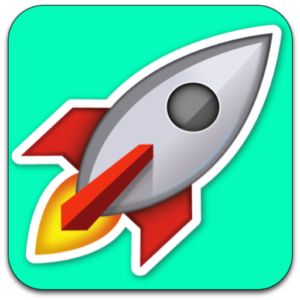Dr. Christine Corbett Moran, Lead Lecturer, Organizer and Curriculum Design
Dr. Corbett Moran is the lead curriculum designer, recruiter and instructor for the Summer App Space (SAS) 2017 program. She brings to the table extensive experience in running such programs from a teaching, technology, organizational, scientific and industry connection perspective.
She taught introductory and advanced courses in MIT MEET: Middle East Education Through Technology for two summers. MEET is a gifted high school program in which she taught Java programming and mobile app development in a project, lecture, and guest speaker format. MEET’s mission is creating a common professional language between Israeli and Palestinian young leaders. Dr. Corbett Moran served as the lead technical instructor in MIT’s Global Startup labs in the Philippines for a summer to students from a variety of backgrounds and socio-economic status in the Manila area in a highly similar format to that planned for SAS. She has organized speakers and technology for TEDxZurich as well as hackathons for Open WhisperSystems and a site of the NASA Space Apps Challenge, on which she is basing SAS projects.
Dr. Corbett Moran dually majored in Physics and Computer Science at MIT, obtained a Master’s and Ph.D. focusing on Computational Astrophysics at UZH, and her NSF Astronomy and Astrophysics Postdoctoral Fellowship research is at the intersection of the two. She has worked for SpaceX as an intern in Propulsion Analysis and has over 10 years of industry programming experience in cutting-edge web and mobile technologies. Dr. Corbett Moran has served as a teaching assistant and lab assistant for 8 courses, spoken around the globe as a highly praised public speaker, and mentored several students. Dr. Corbett Moran’s participation has been enabled by NSF Astronomy and Astrophysics Postdoctoral Fellowship award AST-1501208.
Aybüke Gül Türker, Learning Scientist, Lab Instructor, and Curriculum Design
Aybuke Turker will join Summer App Space to help us iterate and evaluate our custom curriculum. With a focus on educational data mining for her Ph.D., Aybuke is curious to see if there is a viable way for cognitive computing and data to create dynamic data driven learning experiences to enable new ways of personalized learning.
Before joining to Games+Learning+Society Center and Complex Play Lab at UW Madison, Aybuke completed her Master’s degree program in Digital Media Design for Learning at NYU. With a concentration in Games for Learning, she has created digital media for learning, including physical and digital games, mobile apps, websites and tangible interfaces.
Her goal is to make learning addictive, adaptive and personalized. Her favorite quote is “Analytics are never neutral! Every act of data collection is a reflection of pedagogy.”
Dr. Jameson Rollins, Lecturer
Jamie received a BS in physics from the University of Michigan, an MS in physics from the Massachusetts Institute of Technology, a Ph.D. in experimental astrophysics from Columbia University in the City of New York, and served a stint as a post-doc at the California Institute of Technology. He’s devoted most of his adult life to the pursuit of the elusive gravitational wave, working in the LIGO project for almost 18 years. He has worked on many aspects of the gravitational wave detection problem, from laser light sources to algorithms for low-latency data analysis. Jamie is currently a staff scientist with the LIGO Laboratory at the California Institute of Technology where he specializes in computer control of the LIGO detectors, and of physical experiments in general. Now that gravitational waves have finally been detected he’s not sure what to do with himself, but he’s pursuing the study of machine learning, quantum computing, and cryptography. In his free time he contributes to various open source software projects, attempts grows things, and enjoys biking, traveling, camping, art, music, and games.
Dr. Carrie Nugent, Lecturer and Lab Instructor
Dr. Carrie Nugent will join Summer App Space as a teaching assistant and lecturer. Dr. Nugent studies asteroids at Caltech/IPAC. She earned her Ph.D. in Geophysics and space physics from UCLA in 2013 and is a 2016 TED Fellow. Dr. Nugent was an AAAS Mass Media Fellow (2008) and has earned an Excellence in Teaching Award, Department of Earth and Space Sciences, UCLA (2008).
Mike Grudić, Lab Instructor
Mike Grudić is a third-year PhD physics student at Caltech. Born and raised in Newfoundland, he obtained a joint Bachelor’s degree in Physics and Applied Mathematics at Memorial University. For his PhD project, he is simulating the formation of star clusters to solve various mysteries of how, where, and why they form. He is interested in a wide range of subjects in computational physics, including stellar dynamics, fluid dynamics, numerical relativity, and radiative transport, and also enjoys programming recreationally. He has been active in science teaching and mentoring throughout his undergraduate and graduate studies, and teaches computational and experimental physics labs at Caltech.
Dr. Sebastian Kiehlmann, Lab Instructor
Dr. Sebastian Kiehlmann is working as staff researcher in the Caltech astronomy department and at the Owens Valley Radio Observatory. He is running a monitoring campaign, observing about 2000 active galaxies weekly with the 40-meter radio-telescope at Owens Valley. The entire program is run with python code from scheduling observations, to controlling the instruments, and processing the data. He uses and writes python code to visualize, analyze, and model the variability of extragalactic jets, which are extremely fast and energetic plasma outflows launched from the close vicinity of super-massive black holes in the central regions of galaxies.
Dr. Sebastian Kiehlmann has obtained his Diploma in Physics from the University of Göttingen in 2010 for studying active galaxies and he has obtained his doctoral degree from the University of Cologne in collaboration with the Max Planck Institute for Radio Astronomy for studying extragalactic jets.
In addition to astrophysics he has a strong interest in graphics design and the visualization of physical and astronomical concepts. He has worked several years for the e-learning portal of the University of Göttingen producing hundreds of graphics for physics, astronomy, and chemistry lectures.
